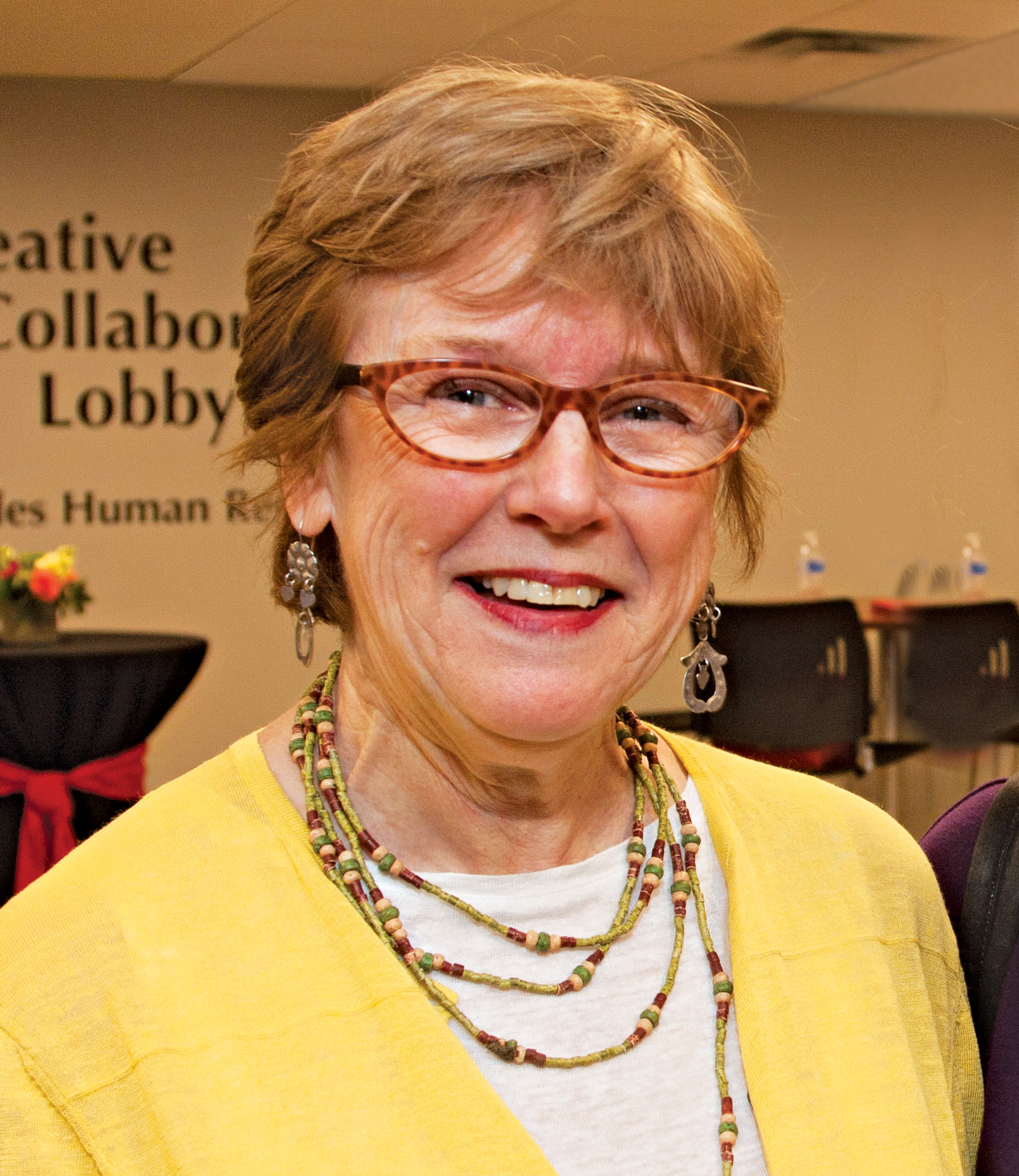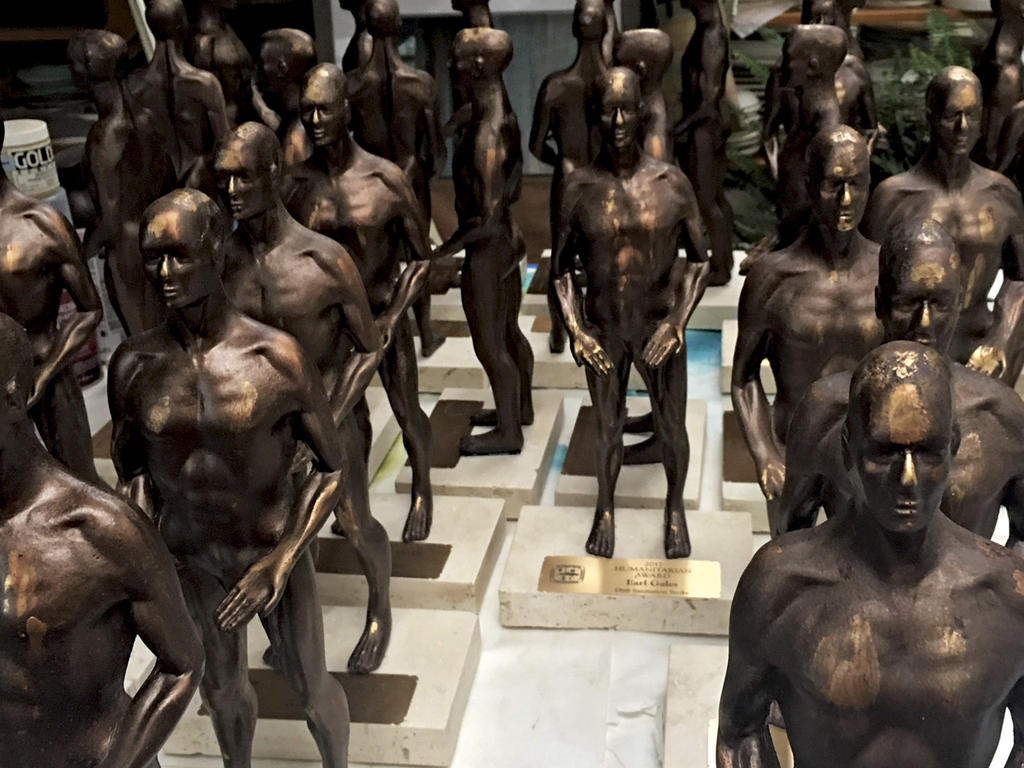
For more than a decade, well-known Memphis artist and Rhodes alumna Carol DeForest ’71 has created the City of Memphis Humanitarian Award, which is presented by the Memphis City Council each year to a deserving person or persons in recognition of their contributions and achievements. The Humanitarian Award, which was first presented on the 25th anniversary of Dr. Martin Luther King’s assassination, serves to honor those who have followed in his footsteps.
This year, the city honored the 30 surviving sanitation workers who went on strike in 1968, the event which precipitated Dr. King’s visit to Memphis. For this year’s award, DeForest individualized the award statuettes by hand-painting the final colors on each, highlighting the hands and faces of the figures with gold leaf on a background of powdered bronze on the body. In her artist’s statement, she explains: “These highlights are to represent a light shining on each man’s hands and face to demonstrate that MLK was attempting to shine a light on the plight of these people and other injustices. I also wanted the identities of each man to be lit up with a beacon of hope for justice.”
DeForest’s connection to this year’s Humanitarian Award runs deeper than her creative contribution to the event. “In 1968, I was a college freshman at Rhodes College, called Southwestern at Memphis in those days,” she continues. “When the strike was called, I joined other students who rallied to the call and marched with the Sanitation strikers. It was one of my proudest moments—to be present with them and with Dr. King, until his last speech the night before he was assassinated.
“I still have my ‘I AM a Man’ sign that I carried in the marches. A photo of that sign now resides in the Public Defender’s Office at 201 Poplar. This project was more than just another job for me—it was truly a labor of love and respect. As I finished each of the figures, I thought deeply of each man, as an individual person, who helped change our world, and tried to reflect that in my work.”
